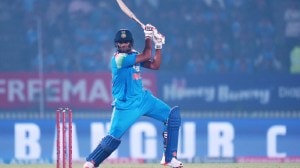For a brighter future
For the Bharatiya Janata Party, which turned 20 on Thursday, it is certainly a time to look before and after. The immediate need is to rec...

For the Bharatiya Janata Party, which turned 20 on Thursday, it is certainly a time to look before and after. The immediate need is to recognise the implications and imperatives of the present power-sharing at the nation8217;s helm. And, even more importantly, to consolidate the consensus that the coalition rule in New Delhi represents. Such an exercise won8217;t be incompatible with the long-term aspirations of the party. It will go a long way, in fact, to help the image of the BJP even as it seeks a larger constituency and role. A cursory look-back on this occasion should suffice to show why.
The anniversary just observed, it deserves to be noted, is that of a party that itself was a product of the first experiment in coalition politics at the Centre. The BJP was not a mere reincarnation of the Bharatiya Jana Sangh as it emerged from the ruins of the undivided Janata Party, of which it had been an important part. After that power-sharing stint at the Centre, when Atal Behari Vajpayee and L. K. Advani first made their mark as national leaders, life could never have been the same for the political wing of the Sangh Parivar. It has not been, in spite of off-and-on attempts from within the party to return to its roots and to resist its march into politics of a more pluralist and mainstream character. The Ayodhya campaign, culminating in the Babri Masjid demolition, was the most conspicuous instance of such resistance that brought short-term gains but only serious problems in the larger perspective.
It is by overcoming these problems by a nationwide network of alliances which would have been unthinkable in the Jana Sangh8217;s days of Hindi-Hindu-Hindustan that the BJP has successfully negotiated its way since then to power-sharing at the Centre again, this time as the declared leader of the National Democratic Alliance. Vajpayee has chosen the occasion not only to speak of the party8217;s victory but also to voice the resolve of its leadership, at least the section he symbolises, to make the change at the Centre work. His call to the Congress for cooperation in evolving a national consensus on national issues and to the allies in the NDA in implementing unpopulist decisions bespeaks a new confidence on the BJP8217;s part. More widely notable has been his sharp rebuke to the hardliners in the Sangh Parivar, who have been trying to combine the saffron and the swadeshi in their criticism of the coalition8217;s policies and performance.
What makes this criticism particularly dangerous to the BJP is the underlying but obvious presumption that the coalition is only a matter or passing convenience, only a stepping stone to unshared power. The criticism can only serve to create the public impression that the party and the parivar are only waiting for better conditions and times in which to take issues off the famous 8220;back burner8221; and implement a non-NDA agenda. There is another category of his government8217;s critics, whom the Prime Minister has not mentioned: those who regard the moderation of the BJP in power only as a mask. These can be answered effectively only by the party making up its mind to put its altered priorities and policies beyond all reasonable doubt.
- 01
- 02
- 03
- 04
- 05































